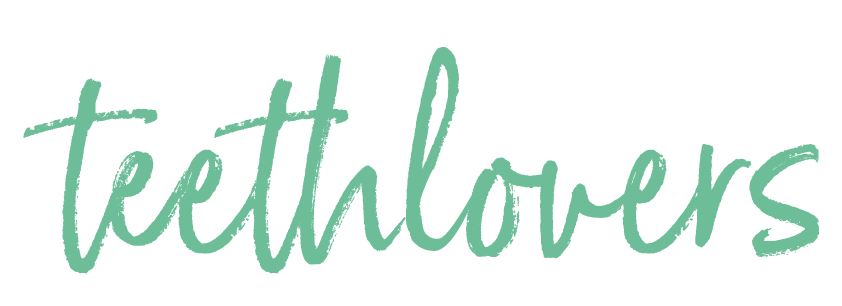
Toothpaste powder? Many people still look at us with wide, puzzled eyes when they hear about it for the first time. How do you use something like that?
Most Europeans have never used anything other than toothpaste to clean their teeth in their lives.
However, tooth powder has been used as a tooth cleaning product for much longer than toothpaste. With a number of advantages.
What is tooth powder actually?
If you remove the 80% of additives from conventional toothpaste (water, consistency agents, foaming agents, preservatives, etc.), around 20% of the active ingredients for dental care remain.
A tooth powder consists of 100% of these active ingredients and can be made from natural ingredients.
In fact, tooth powder has been around much longer than toothpaste. Around 1800, people were already making a powder from lime and salt, for example, to clean their teeth.
Today's teethlovers tooth powder is of course no longer comparable to this. Nevertheless, it is a dry powder made from natural, ground ingredients such as
- clay,
- healing chalk
- and baking soda.
Unlike toothpaste, the powder only contains ingredients that are used for direct dental care and does not contain any additives that are used to make a paste - glycerine, foaming agents, emulsifiers or stabilizers.
What are the advantages of tooth powder?
Tooth powder has a number of key benefits, and not just in terms of dental health.
Regular use of tooth powder has a plaque-reducing effect
You notice plaque as an unpleasant film that builds up on your teeth. This is a build-up of bacteria that feed on your food and love sugar in particular.
Their metabolic products are acids that attack your teeth and gums. Over time, plaque can turn into tartar. Deposits also promote
- inflammation,
- bad breath
- and tooth decay.
Tooth powder gently removes plaque from your teeth. The absorbent and fine structure of the clay and healing chalk support cleaning with a toothbrush effectively and gently. Xylitol also ensures that plaque is less likely to form on the now clean teeth.
Tooth powder ensures your natural teeth whitening
Tooth powder has a completely natural whitening effect. This is thanks to the cleaning agents from clay and healing chalk contained in the powder. They gently polish and effectively remove discoloration that is often caused by
- tea,
- coffee
- or red wine.
The use of tooth powder stimulates saliva production
Tooth powder initially stimulates saliva production in the mouth, which is very important as saliva plays a key role in keeping the mouth and teeth healthy.
In addition to plaque removal, the influence of saliva is always at the forefront of holistic biological dentistry in the prevention of tooth decay.
This is because saliva contains buffer substances such as
- phosphate
- and bicarbonate,
which neutralize acids and thus create a pH value in which tooth remineralization can take place. In a neutral to alkaline oral environment, the nutrient-rich saliva can store minerals in the tooth and thus strengthen the enamel.
In this way, the stimulated saliva production and the tooth powder create an emulsion as a powerful tooth cleaning agent. The
- anti-inflammatory,
- antibacterial
- and soothing effect of the plant extracts contained in the tooth powder also support a healthy oral environment.
You can find out what to do if you have inflamed gums here.
How to use tooth powder correctly?
- Open your jar of tooth powder and take your dry toothbrush. Press it into the powder once with a little pressure. This will ensure that enough of the powder sticks between the bristles of the toothbrush.
- Now insert the dry toothbrush with the adhering powder into your mouth and start brushing your teeth as usual.
- The tooth powder combines directly with the stimulated saliva to form an emulsion that is perfect for brushing your teeth. Initially, brushing with an emulsion is rather unfamiliar, as foaming agents are deliberately avoided. → Foams belong in your washing machine, but not on your oral mucosa.
- Brush your teeth thoroughly as usual and for several minutes. Afterwards, you can check with your tongue and celebrate your super smooth teeth.
By the way: If you don't want to do without a moistened toothbrush, make sure you shake it out well before dipping it into the jar. No water should drip into the powder in the jar.
Tooth powder or toothpaste: which is better?
For us, the advantages of tooth powder over toothpaste are obvious:
- Foaming tooth cleaning products contain surfactants that may make sense in detergent, but have no place in the mouth.
- Other ingredients in a paste such as dyes, emulsifiers or stabilizers also have no place in daily dental care in the mouth - they are not only pointless, but some are also harmful to health.
- The powder has an alkaline pH value. The alkaline environment of the tooth powder is extremely unattractive for acid-loving bacteria.
- Essential oils instead of artificial aromas: plants produce these to protect themselves against bacteria, viruses and diseases, among other things. We gratefully make use of this natural superpower.
- The tooth powder is also ultra-practical when traveling or camping. You can take it with you on the plane in your hand luggage and don't need water to use it at the campsite or in between.
How much tooth powder do I need to brush my teeth?
You dip your toothbrush into the jar exactly once. All that sticks to it is the amount you need for brushing, which is approximately 0.3 g.
Less is more or can be just as much! On average, you will therefore use tooth powder much more sparingly than toothpaste, where approx. 1 g is used per brushing session.
How often should I use tooth powder?
You should brush your teeth twice a day, regardless of whether you use paste or powder. If you reach into the snack drawer in between, it can't hurt to include an extra toothbrushing session.
Any more questions? Perfect - because we have the answers.
Does tooth powder have to foam?
Tooth powder doesn't foam. Not at all. This is because it does not contain any ingredients with a foaming effect. This makes the feeling of brushing your teeth a little unfamiliar at first.
However, as foaming ingredients can have an irritating effect on the oral mucosa and gums, they are not used in tooth powder.
What is the shelf life of tooth powder?
Tooth powder is self-preserving and can therefore be kept for years.
If it is stored in a dry place, it does not provide living conditions for bacteria that love moist environments. Plus, the alkaline pH value and the essential oils it contains make it far too uncomfortable for acid-loving bacteria.
However, as the essential oils evaporate over time and the taste of the powder changes, teethlovers specifies a minimum shelf life of 2 years after production.
Can I also use an electric toothbrush?
Tooth powder can be used just as well with an electric toothbrush as with a manual toothbrush and also with a sonic toothbrush.
The only difference when using tooth powder is the relatively smaller bristle head. You can press the dry bristles a little more firmly into the tooth powder so that more of it sticks between the bristles and you can easily pick up the recommended amount of 0.3 g.
Conclusion
With tooth powder, you can stimulate your saliva production and use your body's own superpowers to strengthen your teeth.
It is super easy to use and water-free, even when you are on the go.
And thanks to the sustainable packaging made of glass and bamboo lid and the refillable storage jar, you can now do without disposable plastic tubes for your daily dental care.
On your teeth, get set, go!

